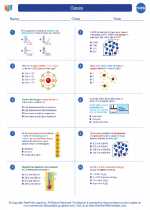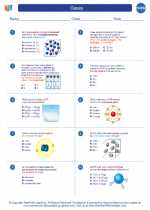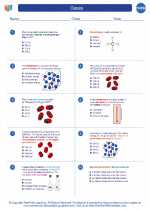Hydration in Chemistry
Hydration refers to the process of dissolving a substance in water or absorbing water molecules. In the context of chemistry, hydration is an important concept, especially in the study of aqueous solutions and the behavior of ionic compounds in water.
Key Concepts
- Solubility: Hydration plays a crucial role in determining the solubility of different substances in water. Substances that can form favorable interactions with water molecules are typically more soluble in water.
- Hydration Energy: When ions are dissolved in water, they are surrounded by water molecules in a process known as hydration. This process releases energy, known as hydration energy, which stabilizes the resulting solution.
- Hydrated Compounds: Some substances form hydrated compounds when they absorb water molecules. These hydrated compounds often have different physical properties compared to the anhydrous forms.
- Hydrates: Hydrates are compounds that contain a specific number of water molecules associated with each formula unit of the compound. These water molecules are part of the crystal structure of the compound.
Examples
One common example of hydration is the dissolution of table salt (sodium chloride) in water. When sodium chloride is added to water, the Na+ and Cl- ions become surrounded by water molecules through hydration, leading to the formation of a salt solution.
Another example is the formation of hydrated copper sulfate, CuSO4·5H2O. In this compound, five water molecules are associated with each formula unit of copper sulfate, forming a hydrated crystal structure.
Study Guide
When studying hydration in chemistry, it's important to focus on the following key areas:
- Understand the concept of solubility and how hydration influences the solubility of different substances.
- Learn about hydration energy and how it contributes to the stability of ionic compounds in water.
- Explore the properties and characteristics of hydrated compounds and hydrates.
- Practice identifying examples of hydration and hydrated compounds in real-world scenarios.
- Study the calculations and measurements related to hydration, such as determining the water of crystallization in hydrates.
By mastering these concepts, you will develop a strong understanding of hydration in chemistry and its implications for various chemical processes and phenomena.
.


